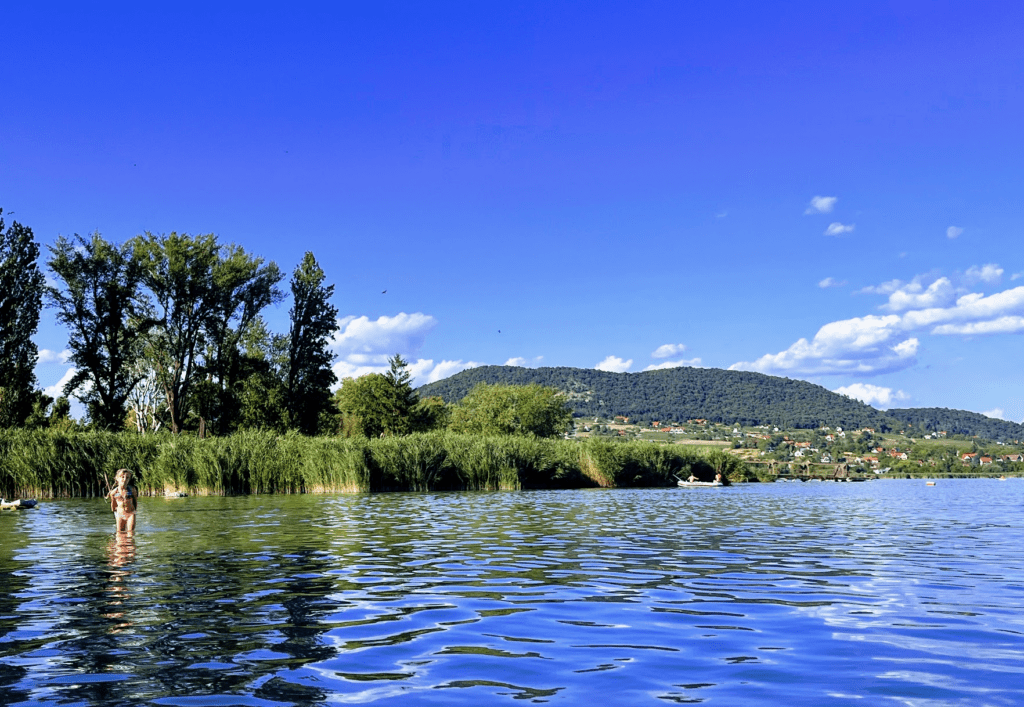Tourists are also responsible for the fate of Lake Balaton
Several European countries have already introduced strict regulations to protect lakes: in Croatia, for example, the number of tourists at the Plitvice Lakes has been maximized, and in Italy, plastic cups have been banned from several beaches on Lake Como. On Lake Balaton, however, many people still do not know that even a discarded cigarette butt can seriously damage the lake’s wildlife, Péter Éskovács, advisor to the Balaton Tourism Association, told our newspaper.
 This year, we are celebrating the first World Lake Day, a global day established by the UN, which aims to draw attention to the protection of lakes – including Lake Balaton, the largest freshwater habitat in Central Europe. According to the Balaton Tourism Association: The lake is not only important from a tourist perspective, but also represents outstanding natural value. Lake Balaton and its surroundings are home to an extremely rich biodiversity: around 250 bird species occur in the region, including more than 25 strictly protected ones, and nearly 40 fish species also live in the lake. These species are sensitive to environmental changes, so protecting water quality is particularly important for their preservation.
This year, we are celebrating the first World Lake Day, a global day established by the UN, which aims to draw attention to the protection of lakes – including Lake Balaton, the largest freshwater habitat in Central Europe. According to the Balaton Tourism Association: The lake is not only important from a tourist perspective, but also represents outstanding natural value. Lake Balaton and its surroundings are home to an extremely rich biodiversity: around 250 bird species occur in the region, including more than 25 strictly protected ones, and nearly 40 fish species also live in the lake. These species are sensitive to environmental changes, so protecting water quality is particularly important for their preservation.
Oxygen deficiency can also occur in the water
One of the biggest environmental threats to Lake Balaton is the so-called eutrophication, i.e. the excessive enrichment of nutrients – mainly phosphorus and nitrogen – in the water. These nutrients mostly come from agricultural fertilizers, sewage and pollutants washed in by rainwater. As a result of the process, algae multiply rapidly, causing algal blooms. This not only spoils the appearance of the lake, but can also cause oxygen deficiency, which seriously endangers the fish population and other aquatic organisms.
Is Lake Balaton getting warmer?
The impact of climate change is also increasingly felt in the Balaton region. Over the past two decades, the lake’s water temperature has increased by an average of 0.7°C per decade, and in the shallower, western basin this value can be as high as 1.8°C. Thanks to the warming, the composition of the wildlife is changing.
Do tourists also pollute Lake Balaton?
According to Éskovács, World Lakes Day is an excellent opportunity to rethink our relationship with natural lakes and finally take concrete steps to protect them. As he said, the presence of tourists – although economically important – can also mean a serious environmental burden: sunscreens getting into the water, discarded cigarette butts, waste, and inadequate wastewater treatment all contribute to the deterioration of Lake Balaton’s water quality. Fortunately, these harmful effects can be significantly reduced with a little attention. Éskovács emphasizes that visitors can do a lot to protect Lake Balaton if they follow a few simple but important rules. Do not leave trash behind, do not throw cigarette butts, use environmentally friendly sunscreens if possible, avoid motorized water sports on sensitive shores, and do not feed waterfowl – especially not with bread.
Related news
Ski season: an emergency can cost hundreds of thousands if we don’t prepare consciously
🎧 Hallgasd a cikket: Lejátszás Szünet Folytatás Leállítás Nyelv: Auto…
Read more >Related news
Lidl launches campaign with tennis star Steffi Graf
🎧 Hallgasd a cikket: Lejátszás Szünet Folytatás Leállítás Nyelv: Auto…
Read more >








